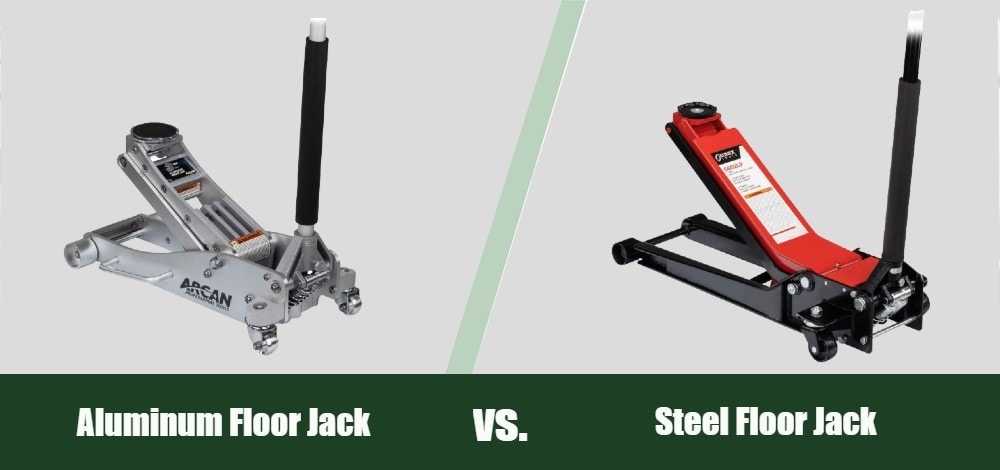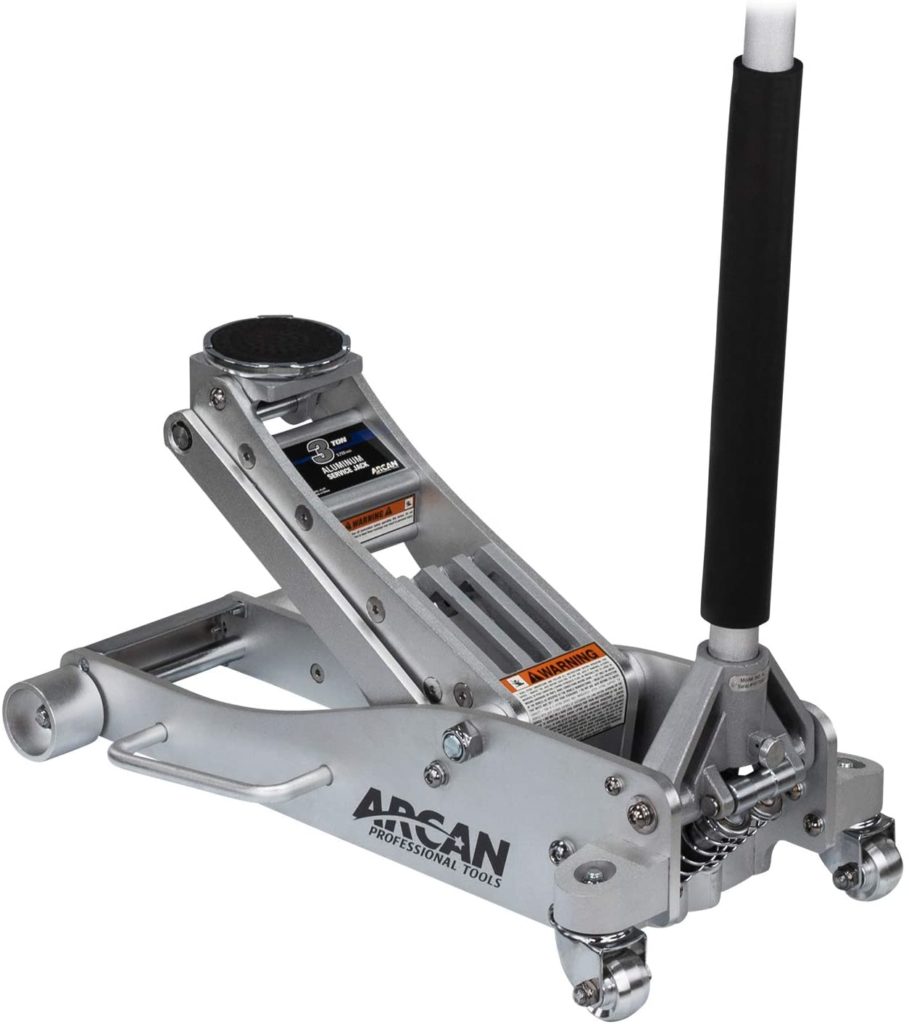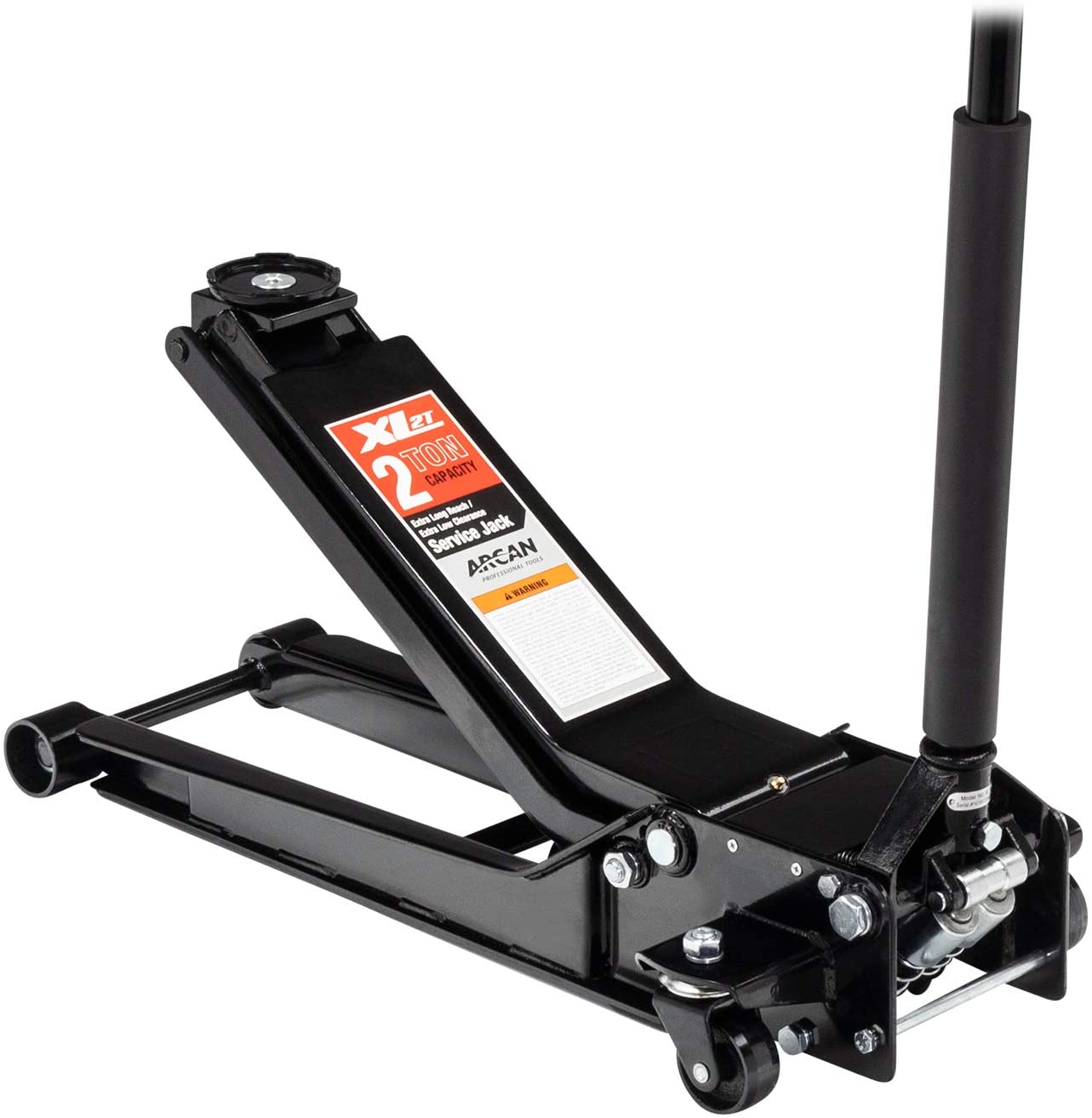Aluminum vs Steel Floor Jack: Which to Choose?
-

- Last updated:


Floor jacks are generally made from steel, aluminum, or a combination of the two. So, which one do you need? The idea that there could be any major difference between aluminum and steel jacks might be lost on some of us. However, there are some situations where you might want one or the other. We will look at both types, examine the pros and cons, and help you make an educated decision.
Aluminum Floor Jack Overview

Aluminum floor jacks are usually all that is needed to handle the do-it-yourself work of typical homeowners. Aluminum weighs significantly less than steel. A 3-ton jack typically weighs in at around 60 pounds. Though it’s still a little on the heavy side, the weight is still manageable to pick up and throw in the back of your truck if you need to take it someplace other than home.
The aluminum jack is relatively flat and has four wheels; they look like a skateboard with a handle. The wheels make it easier to move from one place to another and to quickly and effortlessly maneuver into position.
Aluminum jacks are incredibly durable and can handle a lot of wear and tear. They stand up to being abused in your garage or shop, and they won’t rust. The one downfall may be that aluminum costs more per pound than steel.
That doesn’t necessarily mean the aluminum jack will be the most expensive. Even if the materials cost more, it costs less to shape aluminum than it does to shape steel, and the costs may be about the same. The aluminum may even be slightly less.
- Lightweight
- Portable
- Easily maneuvered
- Durable
- Costs more per pound
Steel Floor Jack Overview
Steel is a much more dense material than aluminum, so it weighs much more. A steel floor jack can weigh up to 100 pounds, so it isn’t something you can casually carry around.
Like their aluminum counterparts, the steel floor jacks have wheels to make them more maneuverable. They’re still easy to move around, but due to their weight, they don’t roll as smoothly as the aluminum ones.
Steel is one of the hardest materials and is made to take a beating. Steel jacks can withstand the daily abuse of a busy shop that works with more substantial equipment. The strength of the jack depends on how it was made.
As long as the jack you purchase is rated for the weight of the vehicle you’re lifting, it doesn’t matter which type you use. The advantage of aluminum is its lighter weight and the fact that it won’t rust. Though steel can rust if kept in damp conditions, steel jacks are impossible to beat up. You can drop heavy items on them or even hit them with a hammer and not put much of a dent in them if any at all.
- Heavy
- Not easily transported
- Cumbersome to maneuver
- Can withstand most anything
- Costs less per pound
Final Thoughts
When purchasing a floor jack, the primary factor to consider is its weight. If you are looking for a light jack you can throw in your trunk to take places with you, aluminum is your answer. Although aluminum jacks are durable, they can’t handle as much as their steel counterparts. If you have large trucks or extremely heavy-duty equipment, a steel jack is required. Just be aware that steel jacks can weigh up to 100 pounds, so they can’t be easily transported from one place to another.
Both jacks have a long handle to give exceptional leverage to help you pump them up to raise a vehicle effortlessly. One isn’t necessarily better than the other, but they each work better in specific situations.
Featured Image Credit: Wikimedia Commons

